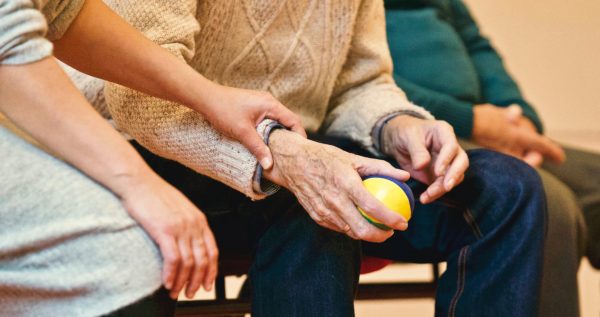
How are aging family caregivers coping with the added pressures of caring for their loved ones with Alzheimer’s disease and related dementias (ADRD) during the current pandemic?
Six researchers from the Southwest Health Equity Research Collaborative (SHERC) recently published a commentary in the Public Policy and Aging Report for the Gerontological Society of America on their work discovering the needs of rural caregivers of people with ADRD, especially during COVID-19.
In the article, the researchers found that social distancing, self-isolation and sheltering in place has added both emotional and psychosocial stress on already strained, aging caregivers in rural areas. The main support service for caregivers, the Area Agency on Aging (AAA), as well as other organizations, have limited or eliminated in-person caregiver support.
The caregivers often do not have the technology, skills or privacy to reach the organization and their support groups by computer, creating a “digital divide” that adds stress rather than relieves it.
The researchers are Heather J. Williamson, assistant professor in the Department of Occupational Therapy and the Center for Health Equity Research (CHER), Michael J. McCarthy, associate professor in the Department of Social Work, Yolanda E. Garcia, associate professor in the Department of Educational Psychology, Rachel Bacon, research associate, Dorothy J. Dunn, retired associate professor in the School of Nursing, and Regents’ Professor Julie A. Baldwin, director of the Center for Health Equity Research.
To learn more or to read the publication, access the spotlight article Addressing the Needs of Rural Caregivers of Individuals With Alzheimer’s Disease and Related Dementias During and Beyond Coronavirus Disease 2019 (COVID-19).
The research was supported by the National Institute on Minority Health and Health Disparities of the National Institutes of Health [U54MD012388].